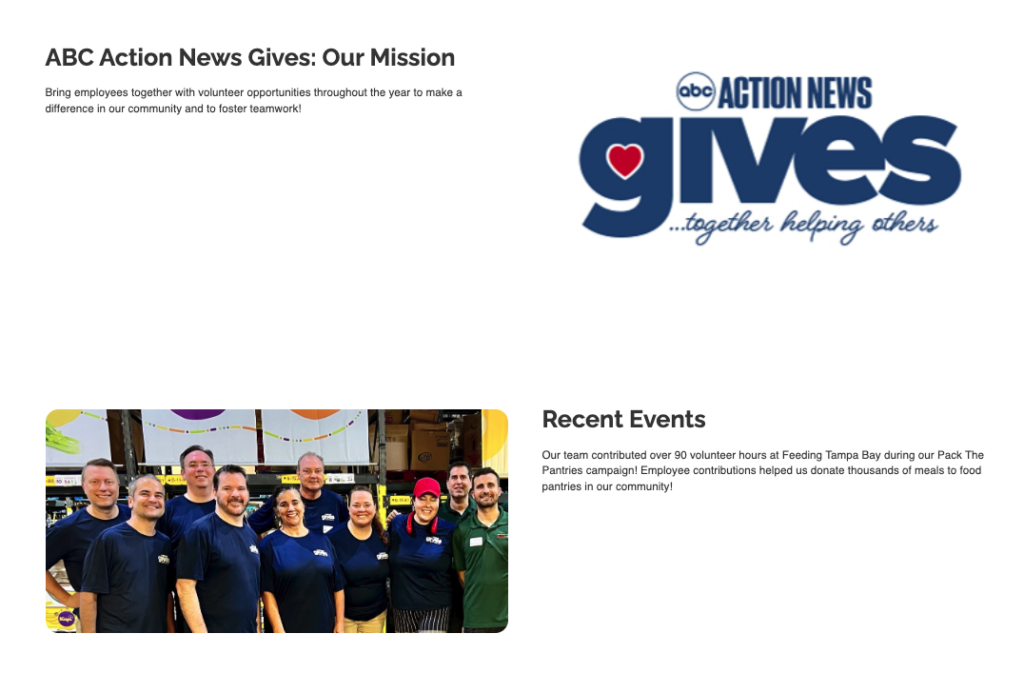When new talent comes across a job posting, they often ask, “What’s in it for me?” They want to know the salary, benefits package, paid-time-off policy, and working arrangements.
However, new talent isn’t only evaluating these above components; they are also looking into a company’s stance on social responsibility. Millennials, who will make up 75% of the workforce by 2025, are looking for socially responsible employers. 76% of Millennials consider a company’s social and environmental commitments before deciding where to work.
Why does new talent care about social responsibility? Because they understand it’s a vital element of corporate culture. When organizations prioritize social responsibility, they are providing employees with collaboration opportunities, strengthening autonomy, enhancing recognition, and ensuring equality, all while aligning with their values.
Let’s further explore how socially responsible companies provide employees with all of the above benefits, making them desirable to attract top-quality talent.
Social responsibility provides autonomous engagement
When social responsibility is baked into your business model, you’re giving your employees the freedom to go out and do good on their terms. Your organization may set the requirements & parameters (such as setting an amount of paid volunteer days), but your employees have the freedom to choose the causes they want to volunteer for, donate to, and fundraise on behalf of.
This type of autonomy, derived from a social responsibility program, allows employees to engage in philanthropic work in a way that suits them best. Below is how a CSR program facilitates autonomy:
- Flexible scheduling: If your employees are given four volunteer days off per year, they can choose when and where they want to volunteer.
- Initiative management: Employees can select the number of fundraisers, donations, or volunteer events they want to partake in. Additionally, they can also choose which nonprofits and charities they want to give back to through these activities.
- Customization: An employee can run an individual peer-to-peer fundraiser on behalf of a cause they care about, customizing that peer-to-peer fundraising page with a donation goal, visual content, and description.
When a company engages in socially responsible initiatives, job seekers will understand that they can get involved, too, but in a way that aligns with their preferences.
Social responsibility facilitates employee recognition
After a volunteer day or fundraiser is completed by a group of employees, what happens next? Companies that care about the greater good are proud of it, and as a result, they will share these accomplishments with their network, a prime example of employee recognition. And with over 7 in 10 employees wanting their employees to do more to motivate them, taking time to appraise your employees is indispensable to attract talent.
ABC Action News, operated out of Tampa, Florida, not only prioritizes giving back and engaging its employees, but they also take the time to recognize their teams’ social good accomplishments. Using Kambeo’s social impact platform, ABC Action News recognized its volunteer team, who contributed over 90 volunteer hours at the Feed Tampa Bay Event as part of the company’s Pack the Pantries campaign.
When new talent comes across this page, they will not only be delighted to see ABC Action News volunteering out in the community; they will be pleased that the popular news station is taking the time to recognize its employees.

Social responsibility improves social connections
When individuals are in the process of applying or interviewing for a new role, two common aspects cross their minds: the work and the people. A job description can illustrate what an individual will be responsible for on a day-to-day basis, but for new talent to get a feel for the human connection aspect, they are also interested in learning more about a company’s social responsibility efforts.
With 8 in 10 people working hybrid or remotely, new talent knows that opportunities to form strong social connections with one another are limited. With remote work, the power of Zoom or Teams hinders genuine connections from flourishing. And even with hybrid work, employees might not be in the office on the same days as their colleagues.
That’s where social responsibility has the power to bring employees together who depend on social connections for a healthier mental and physical well-being. When employees have the opportunity to volunteer or fundraise together, they are able to bond over common interests, share ideas, and solve problems in a low-stress environment—something new talent sees the appeal in.
Social responsibility eliminates hierarchy
Through social responsibility efforts, all employees are on an equal playing field, eliminating the bureaucracy that can come with traditional work roles. Social responsibility makes employees feel like equals, creating an environment where everyone is working together towards a common goal.
When new talent comes across a company sharing the success of its volunteer days or fundraisers, they will be drawn to the decentralized structure that comes with these activities.
Let’s use an example of a hypothetical company-led volunteer day to depict how volunteer duties can be equally distributed among employees.
Scenario: Sporcle Ecommerce decides to run a year-end volunteer event, more specifically, a food drive. Below are some of the duties that can be equally distributed among employees who participate:
- Sorting volunteers: Employees will sort non-perishable food donations, helping to categorize and check the expiration dates of boxed foods.
- Packing volunteers: Employees will pack a variety of non-perishable food items in take-home bags.
- Distribution volunteers: Employees will hand out the take-home bags to individuals and families that visit the food bank.
Social responsibility demonstrates values
Similar to how certain perks such as unlimited PTO, a flexible hybrid/remote work policy, or a health spending program can attract employees, values can also equally appeal to new talent.
Prospective employees want a company to possess values and act on these values. Social responsibility by way of corporate donations, fundraisers, and volunteer days demonstrates to new talent that a company is acting on values of compassion, attentiveness, and empathy—values that often align with their own.
As 56% of employees won’t even consider a job at a company if they don’t agree with its values, acting on values through social responsibility efforts is a crucial element in attracting talent.
Attracting Talent With Kambeo’s Social Impact Platform
When job seekers come across an organization that weaves social responsibility into its corporate culture, they see the tangible benefits a CSR program will add to their prospective employment. The freedom to do good on their own terms, build connections with cross-departmental employees, and receive recognition for their charitable work. These are the components that will make them hit that apply button.
Interested in starting a CSR program to connect your employees with causes, organize company-wide volunteer days, and share your social impact to help attract new talent? Kambeo’s robust platform provides your organization with the tools it needs to prioritize social responsibility.



